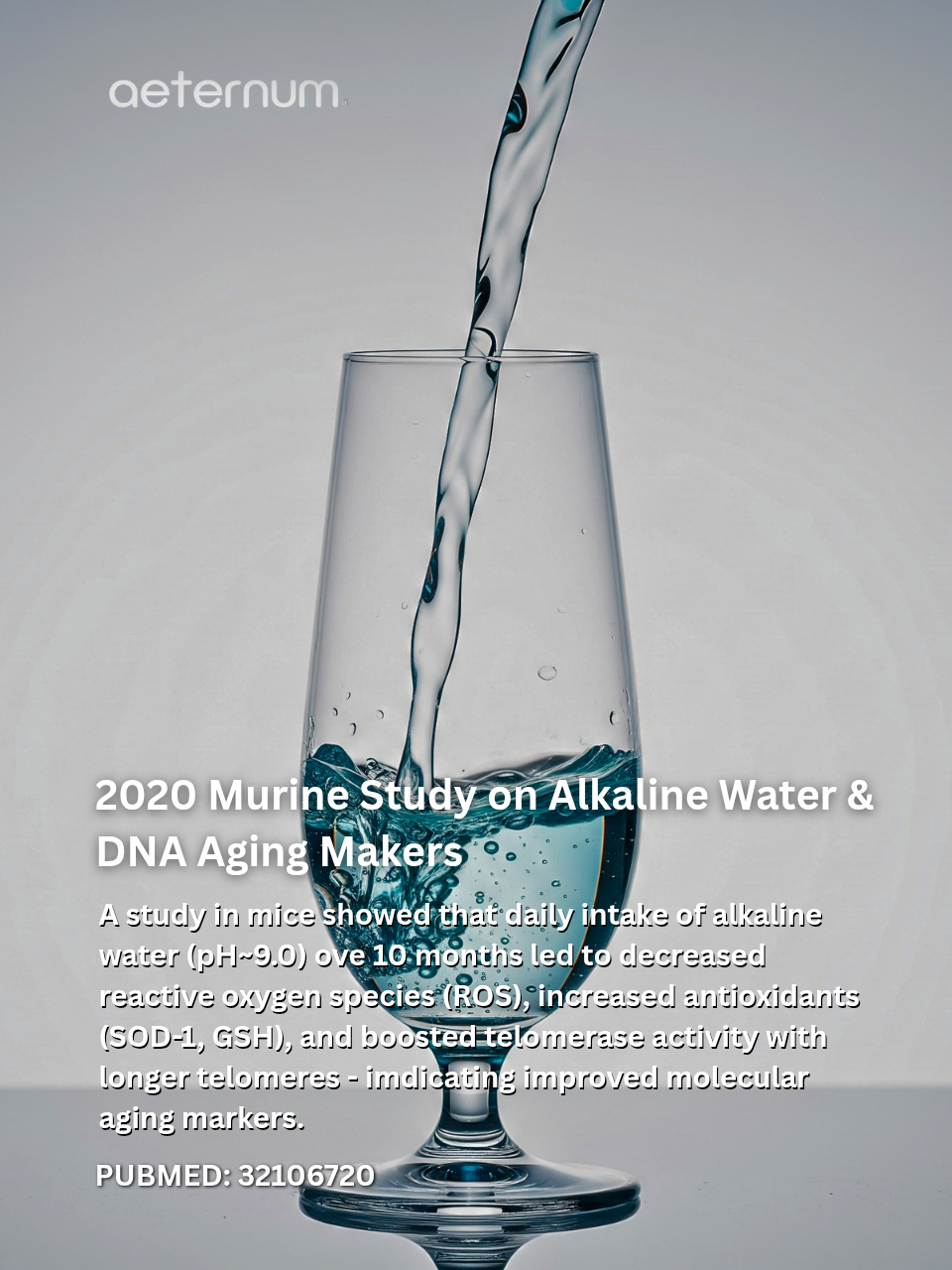A recent animal study by Logozzi et al. explored whether daily intake of alkaline water (pH 9) can influence molecular markers of aging in mice. Over 10 months, starting from early adulthood to middle age (roughly ages 13–41 in humans), two groups of female mice were given either regular tap water (pH 7) or alkaline water daily
Key Findings

These results suggest that alkaline water:
- Reduces oxidative stress (ROS ↓)
- Boosts antioxidant defenses (↑ SOD‑1, GSH)
- Enhances telomerase activity and preserves telomere length—a key marker of aging at the chromosomal level
Why It Matters
- Telomere shortening is a recognized hallmark of aging and age-related diseases. Preserving telomere length helps counter cellular aging.
- Telomerase activation is essential for maintaining these protective caps on DNA strands.
- Oxidative stress can accelerate aging—so antioxidants are healthy allies.
Expert Comments & Community Reactions
A recent post on Rapamycin Longevity News summarized the findings:
“We found reduced ROS levels and increased SOD-1, GSH, telomerase activity and telomeres length in alkaline supplemented mice.”
Another notable insight:
“AWS induced a 3‑fold increase of both telomerase activity into the blood and telomeres length in the bone marrow and ovaries of treated mice.”
The Takeaway
Alkaline water can do more than hydrate, it helps your cells stay youthful, reduce stress from the inside out and support healthy aging.

